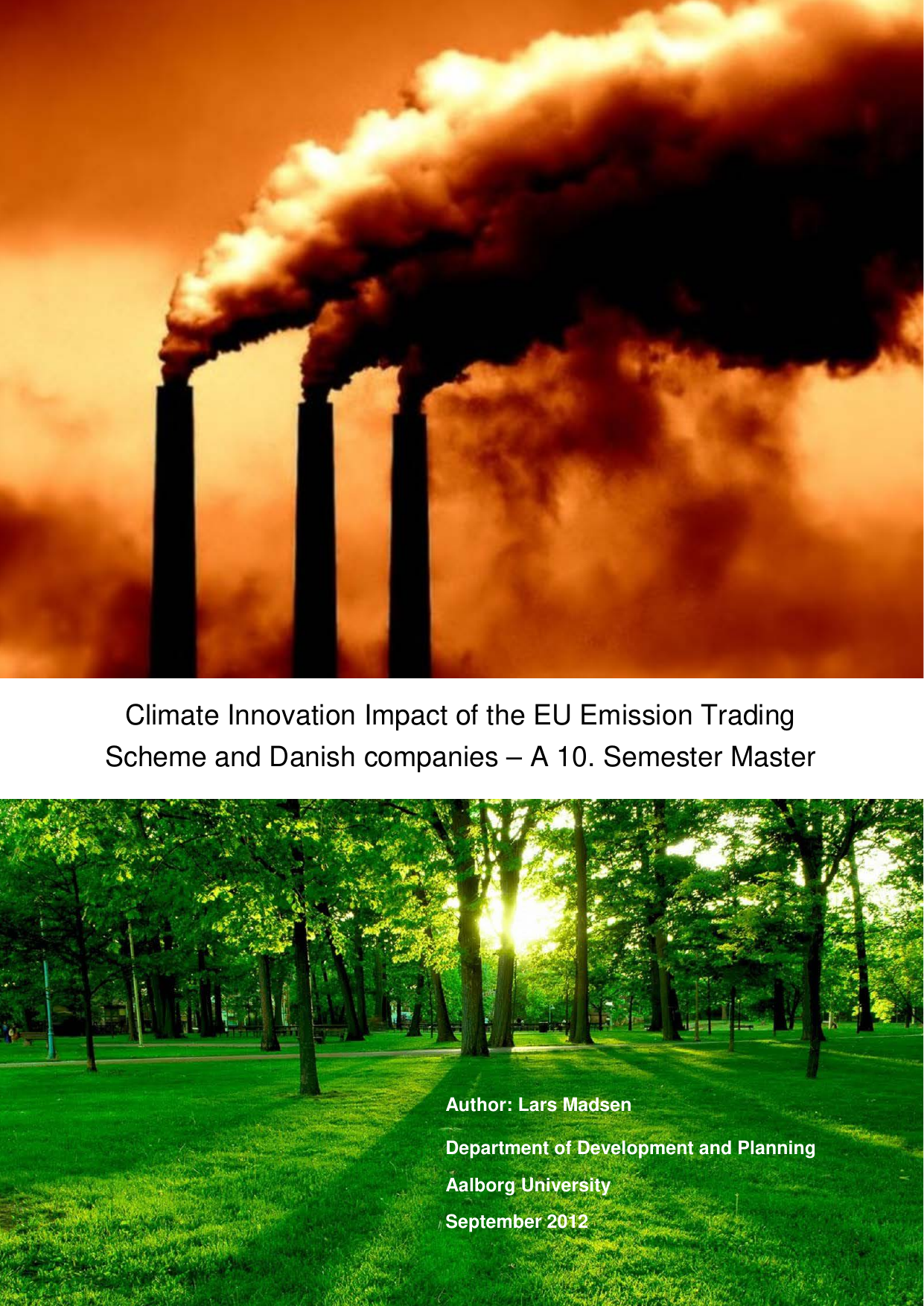
Climate Innovation Impact of the EU Emission Trading Scheme and Danish companies
Translated title
Author
Term
4. Term
Publication year
2012
Submitted on
2012-09-10
Pages
73
Abstract
This report investigates the effect of the EU ETS on Danish companies. More specific the impact a specific allocation method on the strategies used by companies towards the EU ETS. To investigate this, the following research question was created: “How does the choice of allocation method influence the EU ETS’s ability to incentives Danish companies to reduce GHG-emissions?” The study is done on the basis of survey conducted among 68 companies, where 29 companies participated. The study is split into two parts, part 1 investigating the impact of grandfathering in the first and second period of the EU ETS. Part 2 investigates the expected effects of the introduction of benchmarking allocation method in the third period. Part 1 of the project shows that the EU ETS has an impact on Danish companies. Companies have adapted to the system by trading in the market and investing in reducing their GHG-emissions. However the current EU ETS will not bring about a change in the technology companies use. In part 2 it is uncovered that the changed to stricter benchmarking allocation method from 2013, for some companies, will not change significantly in the behaviour of companies towards the EU ETS. Other support policies are needed to incentivise a change to less carbon intensive technology.
Documents
